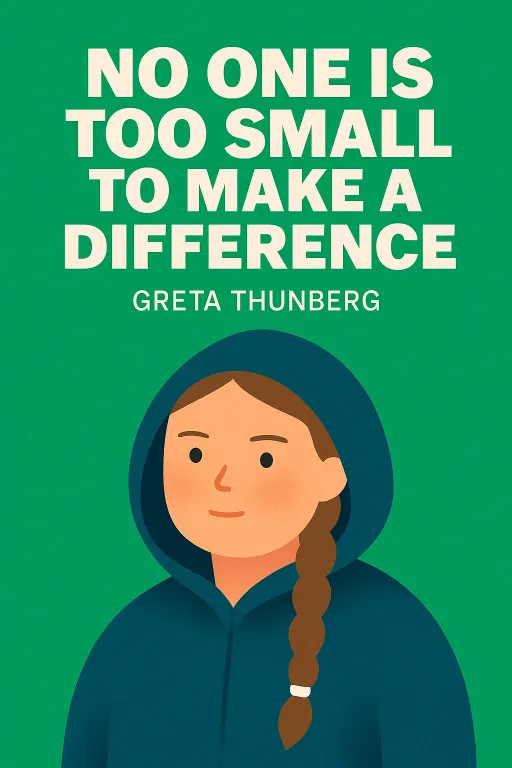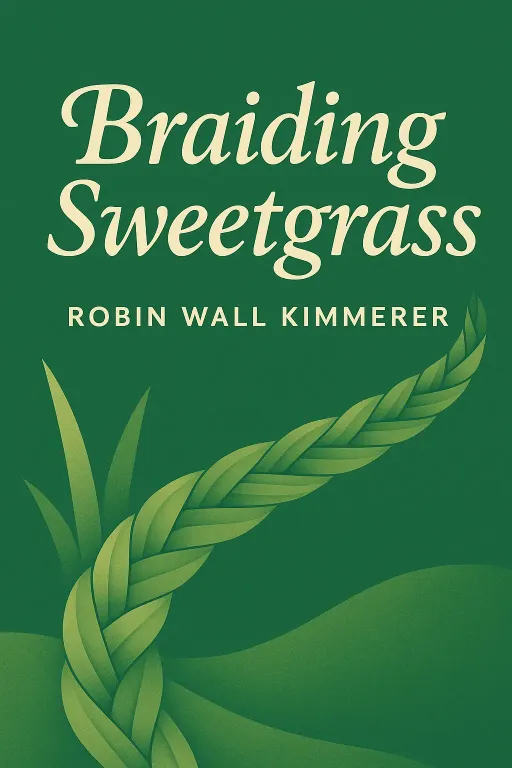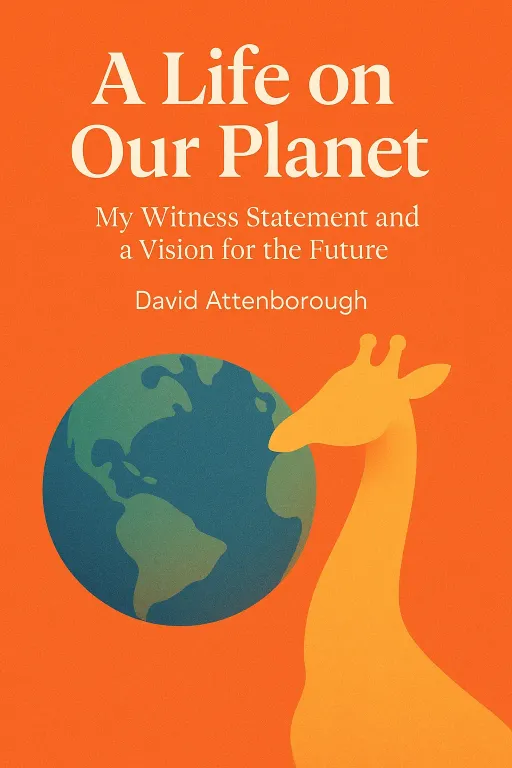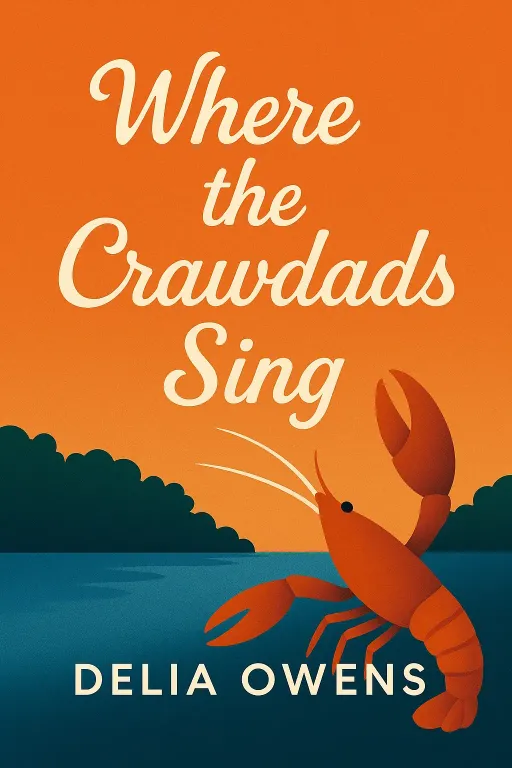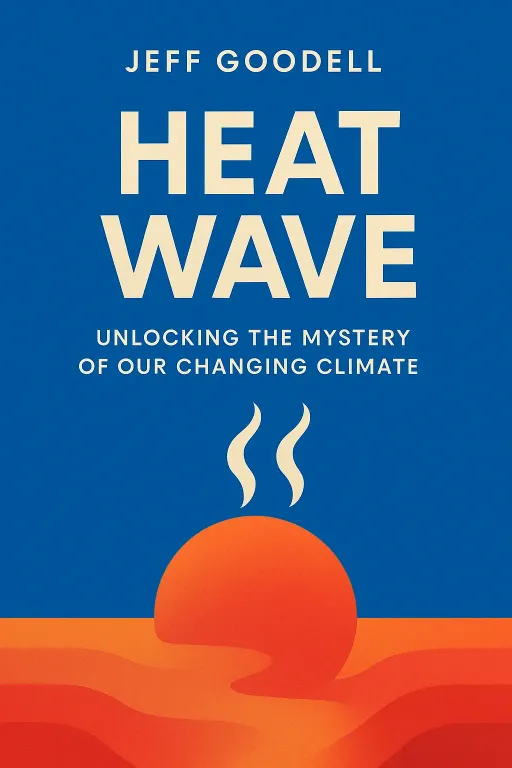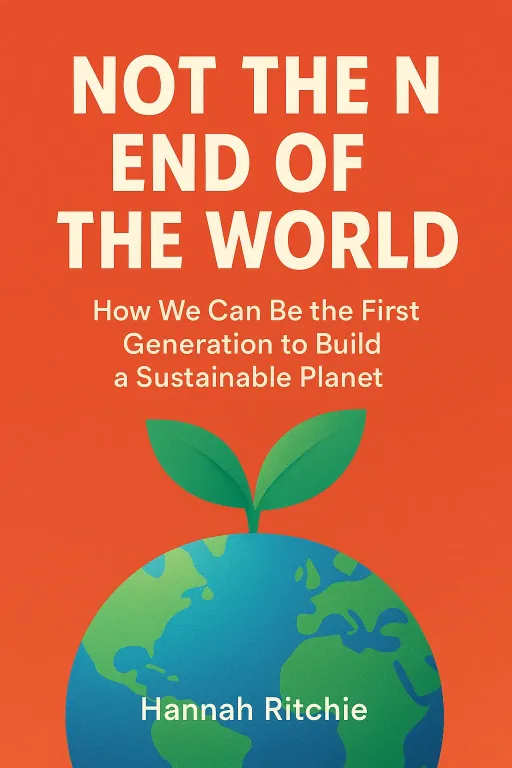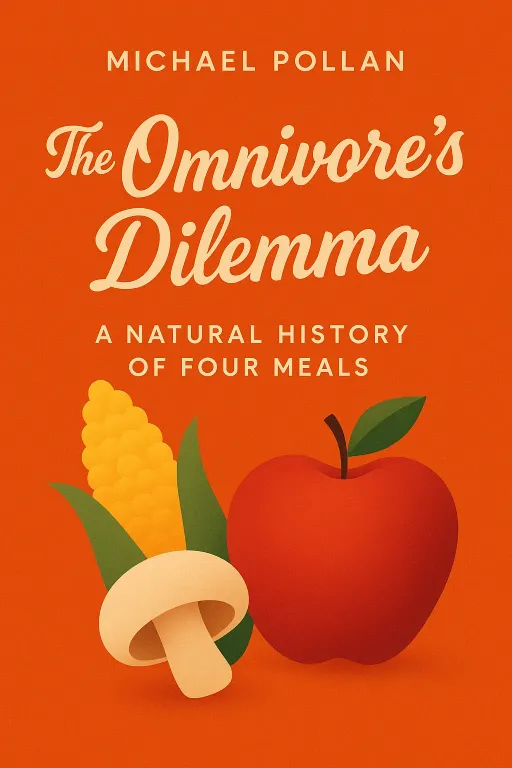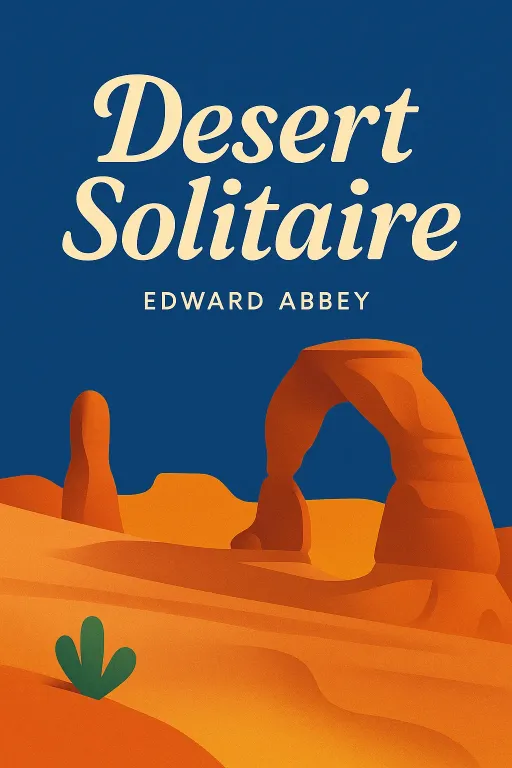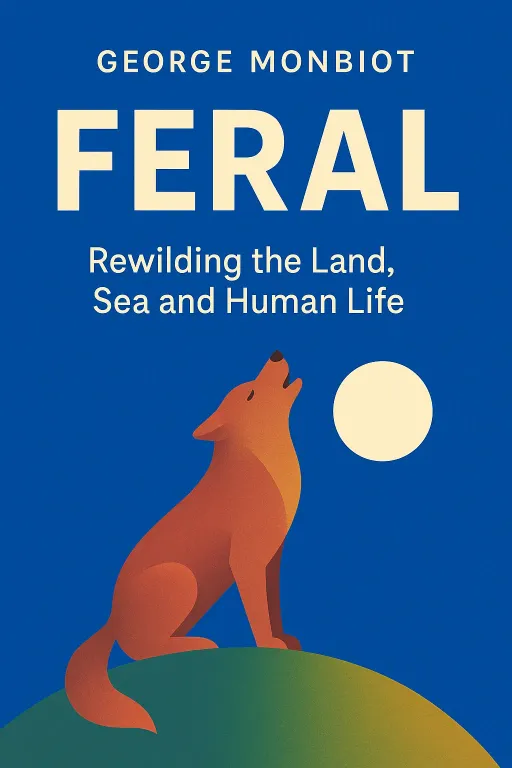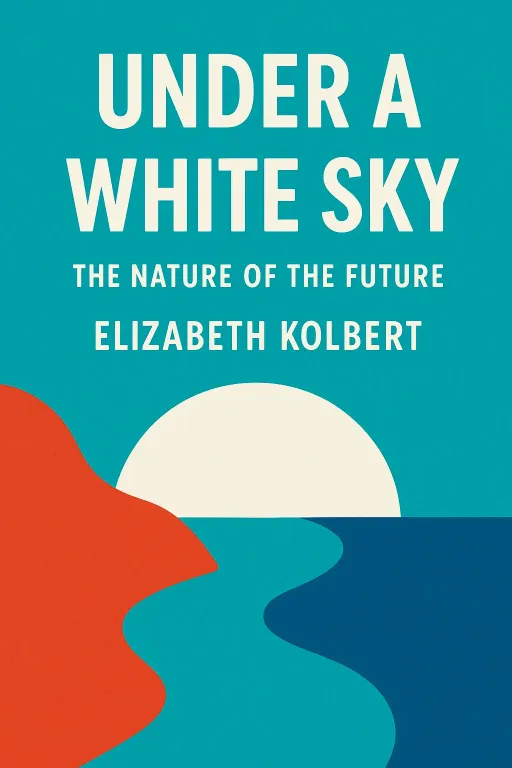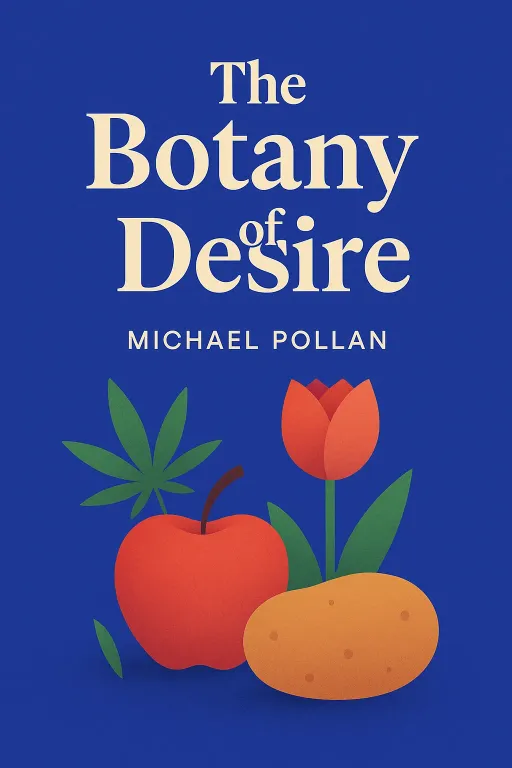
How Plants Hacked Us
11 minGolden Hook & Introduction
SECTION
Mark: Alright, Michelle. Quick-fire. When I say 'Johnny Appleseed,' what's the first thing that comes to mind? Michelle: Easy. A friendly guy in a pot-hat, skipping through the forest, planting perfect red apples for kids. The Disney version, basically. Mark: Perfect. What if I told you he was more like a ragged, wandering mystic spreading hard cider and chaos across the frontier? Michelle: Wait, what? The American Dionysus of apple-booze? Where is this coming from? Mark: It's the central magic of Michael Pollan's incredible book, The Botany of Desire. Pollan is this brilliant journalist who got this idea while literally just gardening. He realized he wasn't just planting potatoes; the potatoes were getting him to do their bidding. It's a perspective that earned the book massive acclaim and really challenges how we see our place in the world. Michelle: Okay, hold on. Plants are using us? That sounds a bit out there. It feels like we're the ones with the brains and the shovels. We decide what goes where. Mark: That's what we all think! Our grammar itself teaches us that we are the active subjects and plants are the passive objects. But Pollan wants us to flip that script entirely. He asks us to look at the world from the plant's point of view. Michelle: A plant's-eye view of the world. I like the sound of that, even if it feels a little strange. How does he even begin to make that case? Mark: He starts with a very simple, personal story. It’s his own garden epiphany.
The Plant's-Eye View: Are We Really in Control?
SECTION
Mark: Picture Pollan on a May afternoon. He's in his garden, doing what gardeners do. He's got a packet of potato seeds, and he's surrounded by the buzz of bees pollinating his apple tree. He feels completely in control, the master of his little domain. Michelle: Yeah, I can definitely relate. That's the whole point of gardening, right? To impose a little bit of order on the chaos of nature. Mark: Exactly. But then he looks at the bees and the apple blossoms. He thinks about their relationship. The bee gets nectar, and in exchange, it carries the apple tree's genes to another tree. It's a classic co-evolutionary bargain. Both species get something they want. The bee isn't 'in charge' of the apple, and the apple isn't 'in charge' of the bee. They're partners. Michelle: Okay, that makes sense. It's a transaction. A biological deal. Mark: Right. And then he looks down at the fingerling potato in his hand. He remembers how he saw it in a seed catalog, how its description—'waxy, yellow-fleshed, with a rich, nutty flavor'—seduced him into buying it. And in that moment, it hits him. He's the bee. Michelle: Whoa. Mark: He's the human bumblebee. He's doing for the potato exactly what the bee does for the apple. He's helping it reproduce and spread its genes far and wide. And that leads him to this profound, book-launching question: "Did I choose to plant these potatoes, or did the potato make me do it?" Michelle: That’s a fantastic question. It reframes the whole power dynamic. The potato evolved to be delicious and easy to grow, and in doing so, it convinced this highly intelligent ape to dedicate his time, energy, and land to making millions more potatoes. Mark: Precisely. The potato tapped into a fundamental human desire—in this case, the desire for control, for a reliable, storable food source. And by satisfying that desire, it went from a modest plant in the Andes to a global agricultural superstar. Michelle: Okay, I think I get it. It's like with dogs, right? Pollan talks about this too. There are way more dogs in the world than their wild cousins, the wolves. Why? Because dogs figured out how to appeal to our desires. They evolved to be cuter, more loyal, better companions... they essentially hacked our psychology for their own evolutionary success. Mark: That's the perfect analogy. Dogs outsourced their survival to us. And in return, we've made them one of the most successful mammals on the planet. Pollan argues that the most successful domesticated plants—the apple, the tulip, cannabis, the potato—have done the exact same thing. They are evolutionary winners because they figured out how to gratify our core desires for sweetness, beauty, intoxication, and control. Michelle: So we think we're shaping them, but they are just as powerfully shaping us. It’s a reciprocal relationship. Pollan has this great line that our grammar divides the world into active subjects and passive objects, but in co-evolution, "every subject is also an object, every object a subject." Mark: That's the core of it. It's a dance. And once you see it, you can't unsee it. It changes how you look at every plant in your life. Michelle: Which I guess brings us back to our friendly neighborhood folk hero, Johnny Appleseed. If the apple was using us to conquer a continent, he sounds like he was its lead agent. Mark: He was its lead agent, but not in the way the storybooks tell us. The real story is so much wilder, stranger, and frankly, more interesting.
The American Dionysus: The Wild, Boozy Truth of Johnny Appleseed
SECTION
Michelle: Okay, so bust the myth for me. The Johnny Appleseed I know is a secular saint, a kind soul planting delicious, crisp red apples for future generations to eat. Mark: That version of him is almost entirely a fiction, a piece of PR created much, much later. To understand the real Johnny Appleseed, whose name was John Chapman, you have to understand the real American apple of the 18th and 19th centuries. Michelle: And what was that apple like? Mark: It was, for the most part, terrible to eat. Apples are what botanists call "extremely heterozygous." This means if you plant a seed from a delicious Red Delicious apple, the tree that grows will not produce Red Delicious apples. It will produce a wild, random, and almost certainly inedible fruit. Thoreau called them "sour enough to set a squirrel's teeth on edge and make a jay scream." Michelle: So they were basically useless for eating? What was the point of planting them, then? Mark: Alcohol. The one thing these "spitter" apples were fantastic for was making hard cider. On the American frontier, cider was the main beverage. It was safer than water, which was often contaminated. It was a reliable source of calories. And, of course, it was alcoholic. It was the fuel of the frontier. Michelle: So Johnny Appleseed wasn't planting orchards for healthy snacks. He was planting orchards for booze. He was a frontier bartender! Mark: In a way, yes! He was a brilliant and eccentric businessman. He would get apple seeds for free from the cider presses back in Pennsylvania. Then he'd travel ahead of the settlers into the Ohio wilderness, find a prime piece of land, and plant a nursery of these seedling apple trees. Michelle: Why ahead of the settlers? Mark: Because he knew what they needed. To claim your land grant in the Northwest Territory, there was a legal requirement. You had to prove you were settling down and improving the land, not just speculating. The law specifically required you to plant "at least fifty apple or pear trees." Michelle: No way. So he was selling them the one thing they legally had to have to own their homestead. That’s genius. Mark: It’s incredibly savvy. When the settlers arrived, exhausted and in need of fulfilling their legal duties, there was John Chapman, with a ready-to-go nursery of apple saplings for sale. He wasn't just giving them away. He was an entrepreneur, and the apple was his product. But he was also a true eccentric. He was a follower of the mystic Emanuel Swedenborg, wore rags, walked barefoot, and was known for his incredible gentleness towards animals. Michelle: So he was this strange mix of savvy capitalist and nature-loving mystic. That's a much more complex character than the simpleton in the pot-hat. Mark: Infinitely more. Pollan frames him as an "American Dionysus"—the Greek god of wine, wildness, and ecstasy. Chapman was this figure who existed on the margins, bridging the gap between the "civilized" settlements and the untamed wilderness. He was bringing the gift of intoxication, of a connection to the wild, transformative power of nature, through the apple. Michelle: And the wholesome "an apple a day keeps the doctor away" image? Where did that come from? Mark: That was a marketing slogan invented in the early 20th century, largely driven by the Prohibition movement. When alcohol became taboo, the apple industry had to rebrand its product. They had to transform the apple from a symbol of cider and intoxication into a symbol of health and wholesomeness. They domesticated the apple's image, just as they domesticated Johnny Appleseed's. Michelle: That is fascinating. They took this wild, boozy fruit and its strange, mystical prophet and turned them into a squeaky-clean American fable. Mark: They sweetened the story beyond recognition. And in doing so, they hid the real, powerful story of co-evolution. The apple, with its promise of sweetness—in the form of alcohol—convinced humans to carry it across an entire continent. It used our desire to achieve its own evolutionary triumph.
Synthesis & Takeaways
SECTION
Michelle: So this whole book is about seeing that our desires—for sweetness, beauty, control, intoxication—aren't just our story. They're a force of nature that other species have learned to harness. Mark: Exactly. Pollan says our desires are no different from a bee's attraction to a flower. We think we're the subjects and plants are the objects, but in co-evolution, every subject is also an object. The apple needed us, and Johnny Appleseed was its agent. The potato needed us, and it seduced us with its promise of control. The tulip needed us, and it captivated us with its beauty. Michelle: It’s a powerful shift in perspective. It’s less about our mastery over nature and more about our entanglement with it. We're not above the system; we're just a particularly useful and easily manipulated part of it. Mark: And that's not a demeaning thought; Pollan finds it liberating. It reconnects us to the web of life. It reminds us that we are part of nature, not its conquerors. The book is a beautiful, deeply researched argument for humility and wonder. It’s no surprise it was so widely acclaimed; it gives you a completely new lens for the world. Michelle: It really makes you look at your own garden, or even the produce aisle, completely differently. What plants are manipulating you? I'm thinking about my obsession with coffee beans. They definitely have their hooks in me. Mark: A great question to ponder. For me, it's the chili pepper. I can't get enough of that painful pleasure. We'd love to hear from our listeners. What plant has its hooks in you? Let us know your thoughts. Michelle: It’s a conversation that could go on forever. A truly mind-altering book. Mark: This is Aibrary, signing off.
